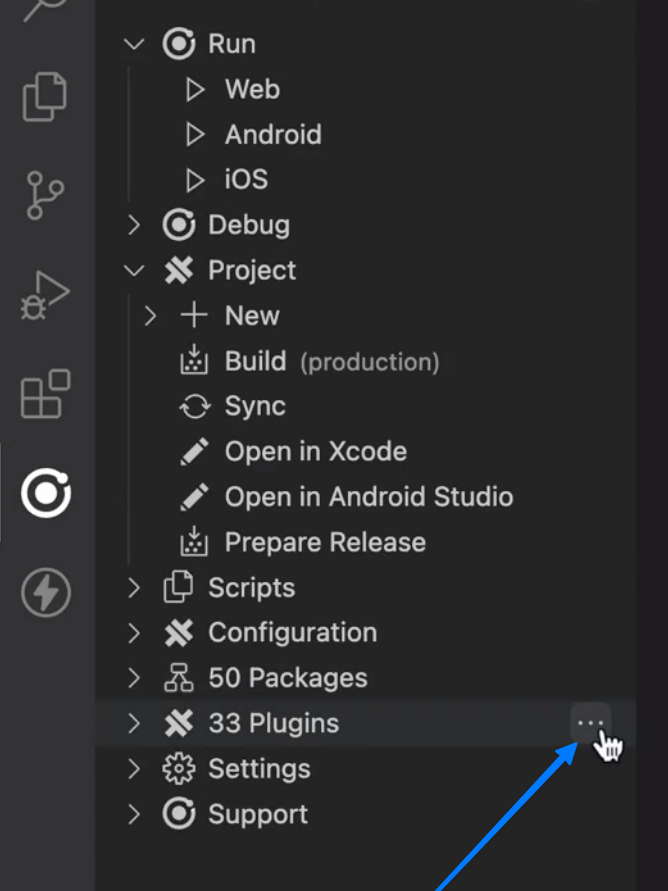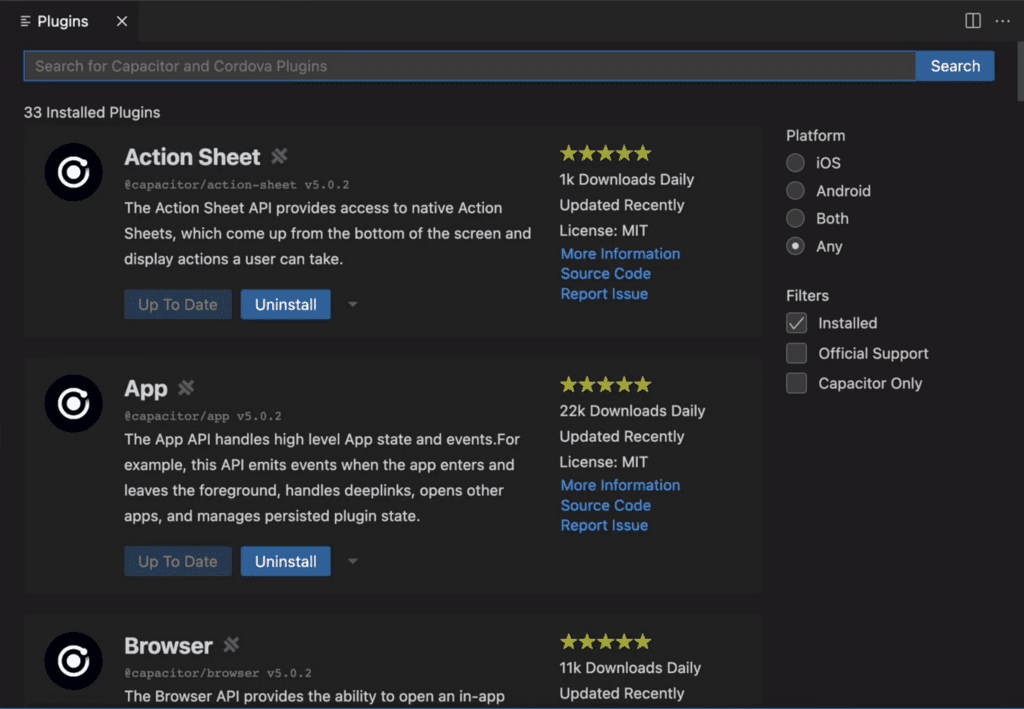A New Capacitor Plugin Registry for Enhanced Discoverability


“That’s one small step for [developer], one giant leap for [Capacitor development].”
- Neil Armstrong
- Michael Scott
- The Ionic Team


To date, Capacitor has served as proof of what is truly possible for building mobile apps with web technologies. As we look forward to many more exciting enhancements ahead, one thing remains clear – you can truly build anything with the right set of tools.
So we want to make it easier to find those tools.
We’re excited to announce a monumental stride in the Capacitor journey – an all-new Plugin Registry. With a focus on empowering the community, the registry is a new window to plugin discovery, supplying developers with the tools they need to build world-class applications with Capacitor.
A quick Capacitor primer
Capacitor is a renowned open-source native runtime that enables web developers to build native apps. It empowers them to craft versatile applications for iOS, Android, and the web, all from one consolidated codebase.
One of the standout features of Capacitor is its ability to tap into the native device functionalities through an extensive library of plugins. These plugins form a vital pillar of the Capacitor ecosystem, enabling developers to incorporate a wide array of native device capabilities directly into their applications, ranging from geolocation services to camera functionality.
The need for a Plugin Registry
As the number of plugins for Capacitor continues to grow, finding the right plugin can be a challenge. Developers often need to spend time digging through Google search results, across various Github repositories and NPM packages to find plugins that fit their needs. That is often followed by time spent analyzing plugin compatibility, reviewing the plugin’s stability, and checking its current support status. This process is time-consuming and, in some cases, a stumbling block for developers, particularly those new to Capacitor.
By introducing a centralized repository of plugins, we aim to streamline plugin discovery, saving time and effort that would be better spent developing the application itself. This registry will also strengthen the ecosystem by ensuring higher quality plugins are easily accessible to all, fostering better community collaboration and knowledge sharing.
Introducing the Plugin Registry
The new Plugin Registry is a database with over 1100 plugins that are compatible with Capacitor projects, complete with detailed information about each plugin. The registry is designed with an API-first approach, a strategy that highlights the interoperability of the registry, enabling developers and applications to directly consume the information through the open API. All of the details about each plugin, such as its compatibility and rating, are readily accessible through this API providing a comprehensive and usable data source.
Ionic VS Code Extension Integration


We are excited to showcase the first consumer of this API is none other than the Ionic VS Code extension. The extension’s integration with the Plugin Registry API offers developers an enhanced, seamless, and efficient development experience. By incorporating the plugin registry search directly into the developer’s IDE, we can aid in reducing time spent searching for the right plugins and helping developers focus more on building amazing cross-platform applications.
The registry is available in the latest version of the extension. To access the registry, press F1 and type plugins or click the “3-dot menu” next to Plugins in the extension menu.
And then see all the results available to you and install plugins directly from this interface.


Community Contributions
Open source software runs in our veins and this plugin registry is no different. This project is open to developers who are interested in contributing and shaping the future of the Capacitor ecosystem. Whether it’s adding new plugins to the registry, enhancing the existing ones, or improving the underlying API, your input can make a significant difference.
Check out the code on Github and let’s make something amazing together.


